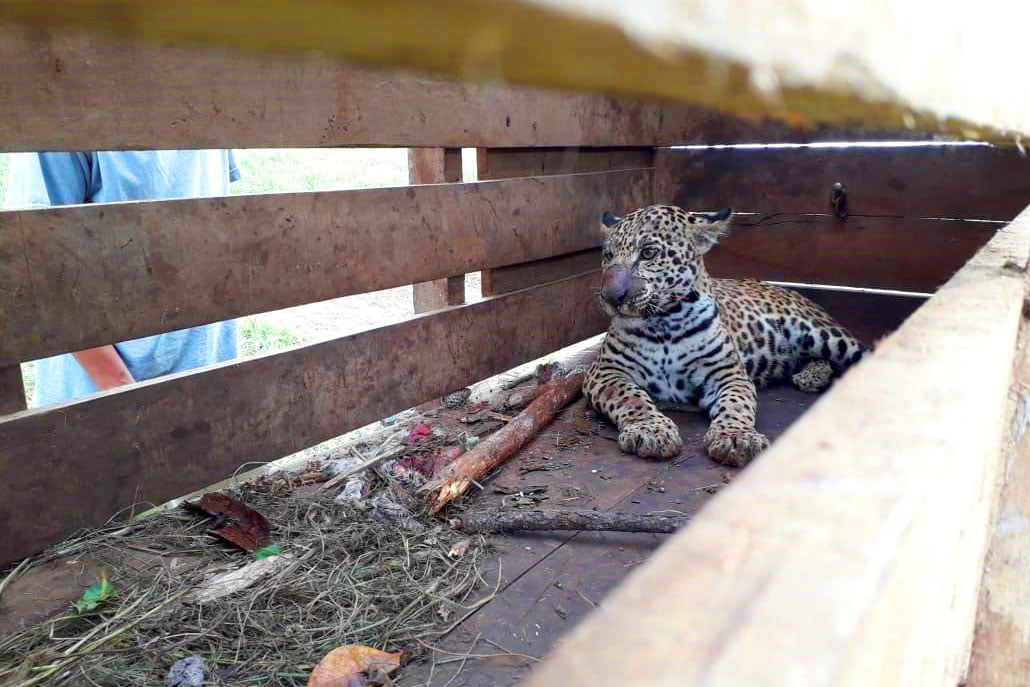On Monday, December 28, 2020, the Forest Department with support from the Belize Zoo and the Ya’axche Conservation Trust responded to a report of a young male jaguar which was captured in Pine Hills, Toledo District. The jaguar was successfully relocated to the Belize Zoo.
The Forest Department recognizes that the livelihood and safety of people are important, and we continue to work along with farmers to prevent any further attacks by jaguars on livestock. The continuous expansion for farming and other developments increases the likelihood of encounters and conflicts with predators, such as the jaguar. In addition, the jaguar’s natural food source is decreasing due to overhunting which is forcing these predators to find alternative food sources. Jaguars and other predators can cause great losses to farmers and are often seen as a problem.


The Forest Department and its partner NGO’s work with farmers to find solutions to the human-jaguar conflict by recommending non-lethal methods of keeping predators away from farms, homes, and domestic animals. There are low-cost measures which can be implemented in farms and homes to prevent incidents by wildlife.
Some measures include:
1. Properly securing food sources and disposing of garbage so that wildlife will not have access to it. It can be as easy as ensuring that garbage bins have lids to prevent wildlife from having access to garbage. Direct or indirect feeding of wildlife can be the start of more serious problems in the future.
2. Keeping areas around your home and farm clean. Wildlife prefer forests or areas where they can hide and attack. Keeping the area around your home and domestic animals clean can help to keep wildlife away.
3. Installing protective barriers such as proper fencing (including electric fencing) or night enclosures can help to keep your domestic animals safe from predators.
4. Improving and increasing the lighting around your home and domestic animals can also help keep predators away. In cases where electricity is not available, solar lights are a good option.
If you are interested in learning more about these and other methods to keep your homes and domestic animals safe from wildlife you can contact the Forest Department at 822-1524, or through our Facebook page, or visit any of our offices countrywide to receive more details.











